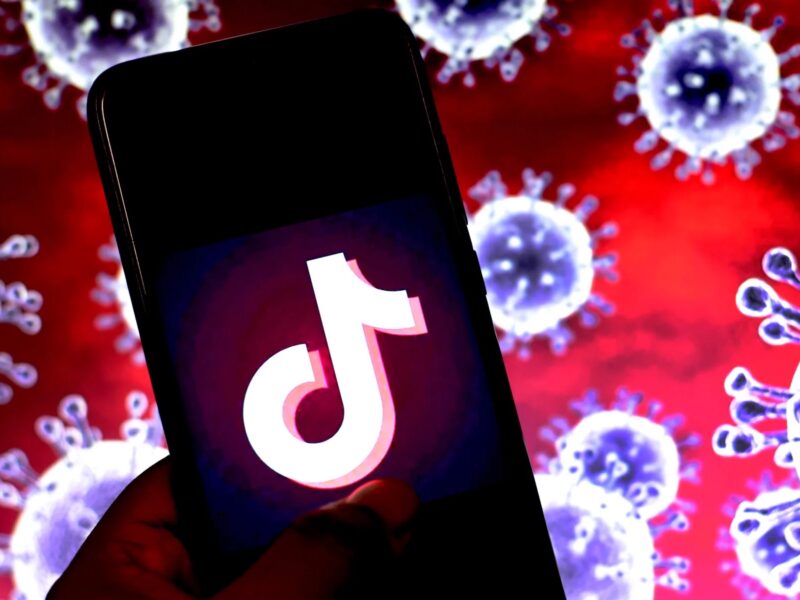
Gin-soaked raisins? The strangest “cures” people claim combat COVID
Statistically, the elderly are one demographic most likely to die if they contract COVID-19. Apart from having immune systems that aren’t what they used to be, the elderly are more likely to suffer health conditions that make COVID worse like hypertension & diabetes.
However, one centenarian overcame the odds and beat COVID. A 105-year-old woman from New Jersey beat COVID-19 and credited an odd cure for the disease that has the world on lockdown: gin-soaked raisins.

Yes, you read that right. Lucia DeClerck, A New Jersey woman who tested positive for COVID-19 the day after receiving her second dose of the vaccine, credited her years-long ritual of eating nine gin-soaked raisins, soaked for at least nine days before consuming as a COVID cure.
Although DeClerck also credits “prayer, prayer, prayer”, drinking aloe juice, and brushing her teeth with baking soda for her longevity, DeClerck specifically cited the gin-soaked raisins as her go-to COVID cure in an article in The New York Times.
DeClerck isn’t alone in sharing odd COVID cures. Let’s dive into some of the strangest cures people have claimed helped them beat COVID.

Mud baths
Indian lawmaker Sukhbir Singh Jaunapuria reportedly filmed himself in a mud puddle, allegedly encouraging people to boost their immune systems to prevent COVID. Blowing in a conch shell while sitting in his mud puddle, he told his constituents in Hindi: “Go out, get wet in the rain, sit in the dirt, work on the farm, blow a conch . . . and eat local, pure food. One gains immunity from doing these things.”
While experts believe eating local, organic food and going out in nature can boost your immune system, it’s not foolproof. In fact, Jaunapuria tested positive for COVID a month after he filmed his video, according to Daily Sabah.

Vodka & saunas
More alcohol-related cures for COVID abound, as Belarus President Alexsander Lukashenko credited vodka & saunas for keeping him healthy. Last March, he told Belarusians to drink vodka “unless working” and visit a sauna twice a week. He also recommended riding tractors early in the year.
The WHO has warned the globe that alcohol isn’t one of the cures for COVID and as always, should be consumed in moderation.

Hamala
Next up in our list of odd cures for COVID, the President of Turkmenistan suggested burning Hamala, a native herb, to prevent infectious diseases like COVID. In a state-run television program in Turkmenistan in 2018, the government recommended cures for upper respiratory ailments like “medicinal teas scientifically described in the book of . . . Berdymukhammedov’s Plants of Turkmenistan”.
No COVID cases have officially been reported in Turkmenistan. However, the CDC has warned travelers to the Central Asian country that COVID-19 transmission risk is “very high”, placing it in Tier 4, the highest level. Health & Human Rights Journal reported that Turkmenistan neither reports nor tests its numbers.
“Despite the government’s refusal to acknowledge that COVID-19 is present in the country, reports of cases circulate among friends, in social media, and by civil society organizations, & efforts are being made to track COVID death”, HHRJ wrote in their report.

Hydroxychloroquine
Of course, we’d be remiss if we didn’t mention hydroxychloroquine, one of the most-touted cures for COVID online and in the news. According to Wired, hydroxychloroquine’s history actually goes all the way back to the seventeenth century when a Jesuit priest brought back a bark that indigenous Peruvians had used for centuries to cure ailments.
This bark, called “Peruvian bark” back in the day, continued the compound chloroquine and was used to treat polio, malaria, and rheumatoid arthritis. Fun fact: it’s also where quinine comes from, the bitter stuff used to make tonic water.

Testing hydroxychloroquine against viruses in the lab has proven to be successful, but it’s trickier to determine how successful it can be in the real world. Clinical trials began in March, but many scientists cautioned results wouldn’t be available for months. On their website, the WHO further cautioned readers that studies didn’t show that it was a cure or even a proper treatment for COVID.
“The use of hydroxychloroquine & chloroquine is accepted as generally safe for patients with malaria and autoimmune diseases, but its use where not indicated and without medical supervision can cause serious side effects and should be avoided”, they wrote on their site.
—
What are the strangest cures or treatments for COVID you’ve heard about? Let us know in the comments!







